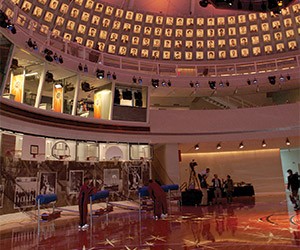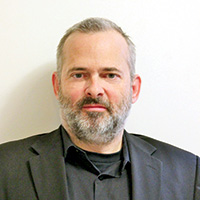Last month’s thrilling Super Bowl may have been a rematch between football teams from Boston and Philadelphia, but the states of Massachusetts and Pennsylvania have always been in a head-to-head battle regarding their prominence in early American history.
In the big picture, both cities and states are co-champs. Ask anyone from Boston, though, and they will tell you that Massachusetts has the edge in this match-up.
The short history lesson begins in 1620, nearly two decades before Swedes colonized the future Pennsylvania, when English Pilgrims landed in the future Provincetown on Cape Cod. They congressed in Philadelphia, but the original Patriots of the Revolution all hailed from Boston, including Benjamin Franklin (although he ran away to Philadelphia at age 17!), John Hancock, John Adams and Paul Revere.
The first battle of the American Revolutionary War was fought in Lexington and Concord, in 1775. From those nation-building days, the Bay State pioneered forward in the arts, education, industry, science and more.
It all makes for exceptional heritage tourism—and solid foundations for Massachusetts’ $775 million meetings and events industry.
Eastern Excellence
Boston, birthplace of the American Revolution, has seen America evolve since 1630.
Key venues include Faneuil Hall. Gifted to the city in 1742 by merchant Peter Faneuil, the “Hub of the Hub” saw colonists declare “no taxation without representation” and Samuel Adams stir Bostonians to the cause of independence.
Today, groups rally in such spaces as the Hall’s Rotunda and Quincy Market, incorporated into the venue along with the North and South markets. At the event-capable Boston Tea Party Ships & Museum, groups can reenact history by tossing East India tea into the Boston Harbor.
The city is filled with other historic options. Opened in 1912, Fenway Park is the nation’s oldest surviving ballpark, offering guided tours and the 200-capacity outdoor deck atop the 37-foot “Green Monster” outfield wall for events.
Boston Common, from 1634, is America’s first public park. Organizers can hold city-permitted events at the former, with the latter mostly serving as a wedding backdrop.
Another first, founded in Newtowne (now Cambridge) in 1636, Harvard is America’s first university. Today it offers versatile venues such as the Science Center and Lee Family Hall of History, tracing the university’s athletic past.
Boston is equally a seat of invention, producing America’s first tannery (1629), first lighthouse (1716) and first computer—the non-electronic “differential analyzer” developed at M.I.T. in 1928. To this day, Boston brains make the city a global center for investing in ideas.
“Knowledge and innovation are at the core of the Boston and Cambridge DNA,” said Greater Boston CVB President & CEO Patrick Moscaritolo. “From our university classrooms and labs to think-tanks, venture capitalists and start-up engines like Mass Challenge, this network produces cutting-edge marketplace products and a brand with wide audience appeal, including corporate and association planners seeking content for their meeting or event.”
After Benjamin Franklin created the first lending library in 1790, the Boston Public Library became America’s first public library in 1848. Grand event spaces include Bates Hall and the interior courtyard.
Another venue is located near the Boston Convention & Exhibition Center in the rapidly developing Seaport District. The former Commonwealth Pier (1913), once the largest in the world, today supports the Seaport Hotel & World Trade Center, offering 180,000 square feet of space including seven ballrooms.
North of Boston in Essex County, Gloucester is America’s oldest fishing port and birthplace of the original schooner, from 1713. Groups can book the three-masted Schooner Thomas E. Lannon for excursions and events. Meanwhile, on land the Salem Witch Museum memorializes the infamous trials of 1692 and offers group tours.
Merrimack Valley groups can explore the origins of the Industrial Revolution at Lowell National Historical Park, or ground zero of the Revolutionary War at Lexington Battle Green and Minute Man National Historical Park.
Central Connections
Worcester, the “Heart of the Commonwealth,” is New England’s second-largest city, with claims to fame including Boston-born patriot and publisher Isiah Thomas.
In 1775, days before participating in the Battle of Concord, Thomas relocated his presses to Worcester, where in July 1776 he gave the first public reading of the Declaration of Independence. In 1789, he published the first American novel, William Hill Brown’s The Power of Sympathy. His myriad other American publishing accomplishments include the first Bible and first Webster’s dictionary.
In 1812 Thomas founded the American Antiquarian Society. Containing some 4 million books, newspapers, music sheets and other items printed before 1876, the Society’s 25 miles of shelves include Thomas’ entire library, and more than two-thirds of all known pre-1821 American imprints.
Guided tours of this Worcester treasure, which includes the national landmark Antiquarian Hall, are presently suspended due to construction work.
Numerous other Worcester firsts include the invention of the monkey wrench, typewriter and liquid rocket fuel. It was also the spot for the first mass-produced Valentine heart, first national Women’s Rights Convention in 1850 and in 1963, Harvey Ball’s creation of the iconic Smiley face.
In 1892, the American Psychology Association held its founding meeting at Worcester’s Clark University, which also produced America’s first Nobel Prize winner in 1902 and hosted Sigmund Freud’s only American lectures. Today, Clark flexibly hosts meetings, events and summer conferences.
Scenically stretching from Worcester to Providence, R.I., the Blackstone Valley features the John H. Chafee Blackstone River Valley National Heritage Corridor. Considered the “Birthplace of the American Industrial Revolution,” this unique U.S. National Park showcases America’s transformation from “Farm to Factory” across 24 cities and towns.
Western Ways
Seat of the Pioneer Valley, historic Springfield is known as the “City of Firsts.”
Slated for this fall, the new $950 million MGM Springfield’s interior design pays creative tribute to the city’s literary and industrial past. Notable nods include Dr. Seuss, with the new Amazing World of Dr. Seuss Museum, one of five Smithsonian-affiliated Springfield Museums, as well as dictionary publisher Merriam-Webster and poet Emily Dickinson, also with her own area museum in Amherst.
Basketball was invented here in 1891 by Canadian-born teacher James Naismith. Opened in 1959, the Naismith Memorial Basketball Hall of Fame offers some 80,000 square feet of versatile space for meetings and events. Volleyball was born in 1895 in nearby Holyoke, where groups can tour the International Volleyball Hall of Fame.
Authorized by George Washington as the nation’s first armory, the Springfield Armory, preserved as a National Historic Site, offers year-round tours and special events. North of the city, the Historic Deerfield living museum features 18th and 19th century houses lining a street laid out in 1671. Event space is available at the 24-room Deerfield Inn.
In northwestern Massachusetts, mountainous Berkshire County’s trove of group-capable heritage sites include the National Landmark Hancock Shaker Village and the Herman Melville Arrowhead historic home and museum, both in Pittsfield. Another group option is the Norman Rockwell Museum in Stockbridge.
The Massachusetts Museum of Contemporary Art, or MASS MoCA, in North Adams is a triumph of adaptive reuse.
Opened in 1999, this campus of 27 interconnected 19th century brick buildings revived a 16-acre industrial site with a manufacturing lineage dating to Colonial times.
Unveiled in May 2017, the $55 million renovation of Building 6 (B6) added 150,000 square feet of gallery and other space, nearly doubling the museum’s footprint to 250,000 square feet. Featuring year-round programming, MASS MoCA’s versatile spaces include B6 and the museum galleries.
In Lenox, world-renowned Tanglewood, in its 81st year as the summer home of the Boston Symphony Orchestra, offers versatile indoor and outdoor rental options, catering included.
CVB Contact Information
1Berkshire
413.499.1600
Cambridge Office for Tourism
617.441.2884
Cape Cod COC
508.362.3225
Discover Central Massachusetts
508.753.1550
Greater Boston CVB
617.536.4100
Greater Merrimack Valley CVB
978.459.6150
Greater Springfield CVB
413.787.1548
Office of Travel & Tourism
617.973.8500
North of Boston CVB
978.465.6555







